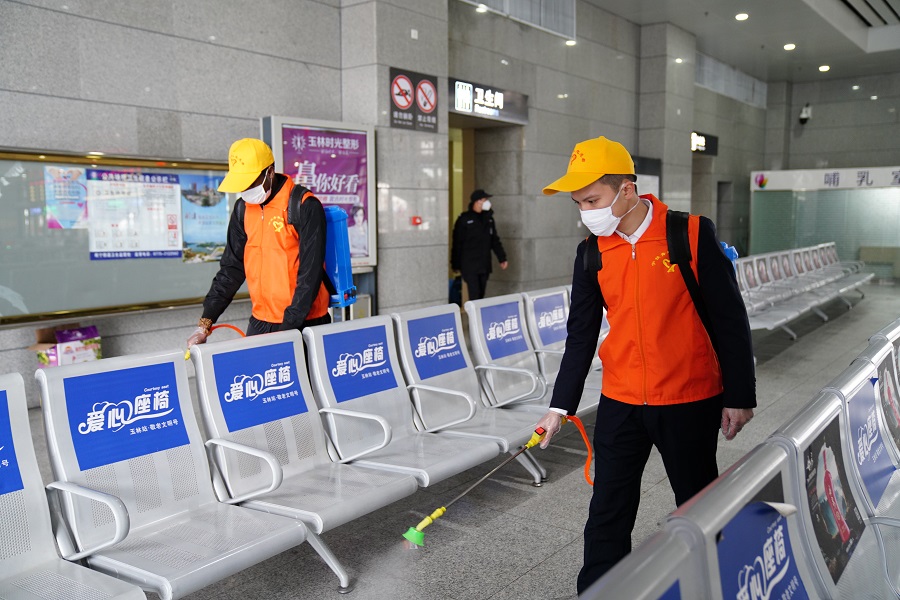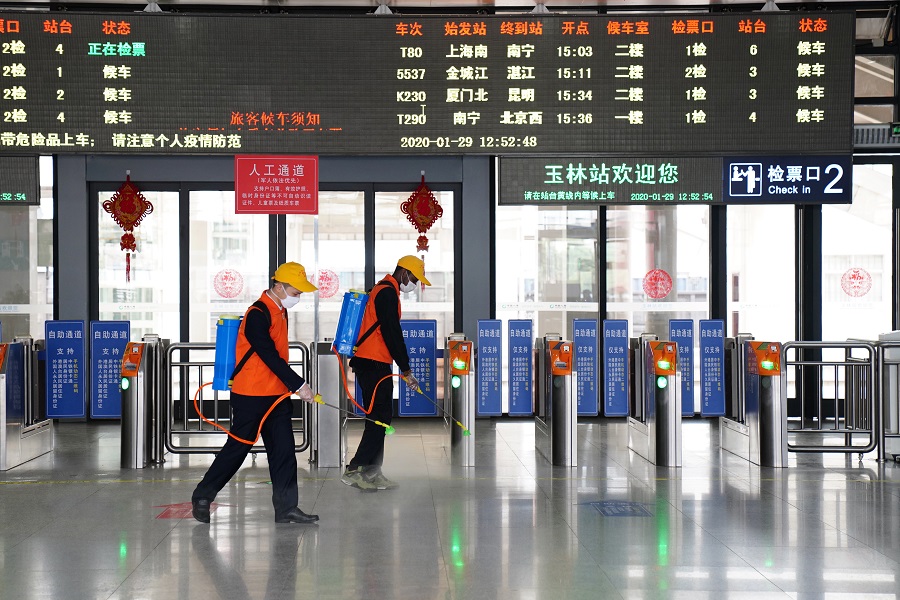Foreign volunteer does his part to curb spread of coronavirus
By Wang Keju in Beijing and Shi Ruipeng in Nanning | chinadaily.com.cn
Updated: Feb 5, 2020
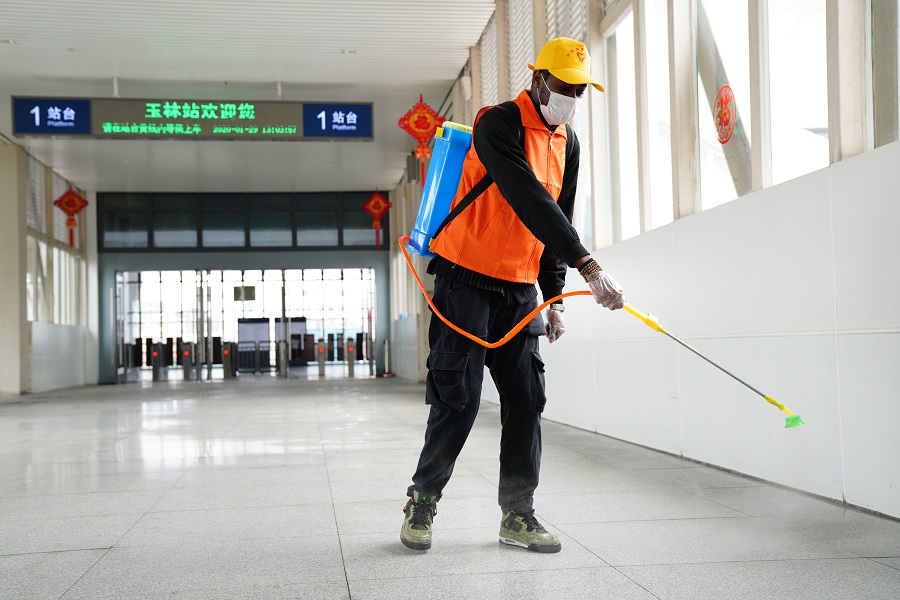
Wearing a yellow hat, vest and face mask, Munyaradzi Gurure stood at the Yulin train station in Guangxi Zhuang autonomous region, busily checking the body temperature of passengers at the entrance.
Though overwhelmed by the news of the novel coronavirus outbreak, the 21-year-old student at Guangxi University of Finance and Economics from South Africa has still stepped out to serve as a volunteer in the train station to help battle the epidemic.
“I’m well aware the situation of epidemic prevention and control is very severe,” he said. “Seeing that many people actively joined in the fight, I also wanted to do my part and volunteer at the station.”
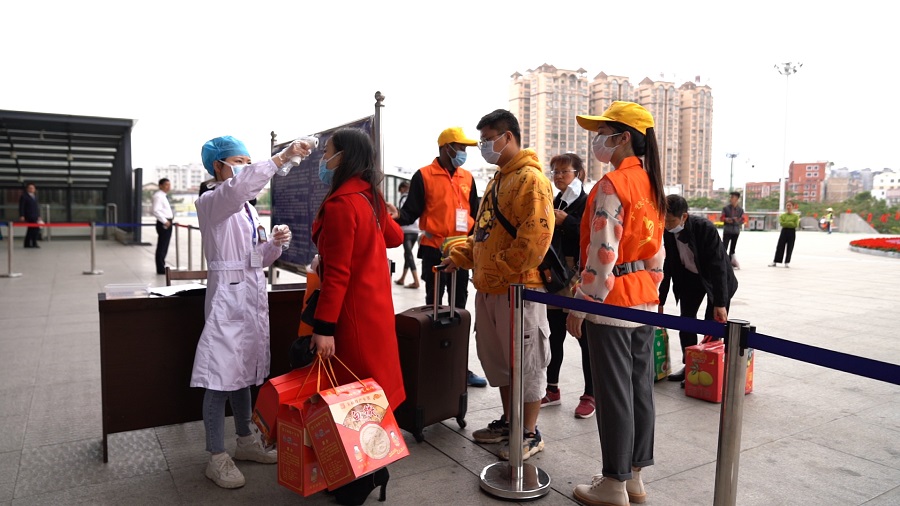
Invited by his friend Li Yuzhao, who works at the station, to sing a song for the first day of the Spring Festival travel rush on Jan 10, Gurure began to take part in volunteer work at the station to experience the largest human migration on the planet.
However, the novel coronavirus outbreak in China began in tandem with the Lunar New Year, with many parts of the country going under quarantine in hopes of stemming the spread of the disease.
With the number of novel coronavirus cases continuing to rise both in and outside of China, Gurure’s family back in South Africa was very worried about his health, and hoped he would quit the volunteer job.
“I told my parents China has taken a lot of strong quarantine measures and is actually safe,” he said. “I want to do whatever I can to prevent the spread of the infection. The country took really good care of me during the last three years. Now it’s my turn.”

Working about four hours a day, Gurure either carries an 8-kilogram electric sprayer to disinfect the waiting room or checks everyone’s temperature as soon as they walk into the station. He also makes sure people are in good health and wearing masks at all times.
Though it’s not easy work, Gurure came across many Chinese passengers who are very surprised to see a foreign face, but then give a thumbs up and say “very good” to him in Chinese. This encourages him to keep up the challenging work.
Gurure’s foreign classmates found out about his volunteer job and sent messages saying “good job”, some showing interest in joining him to help curb the spread of the virus.
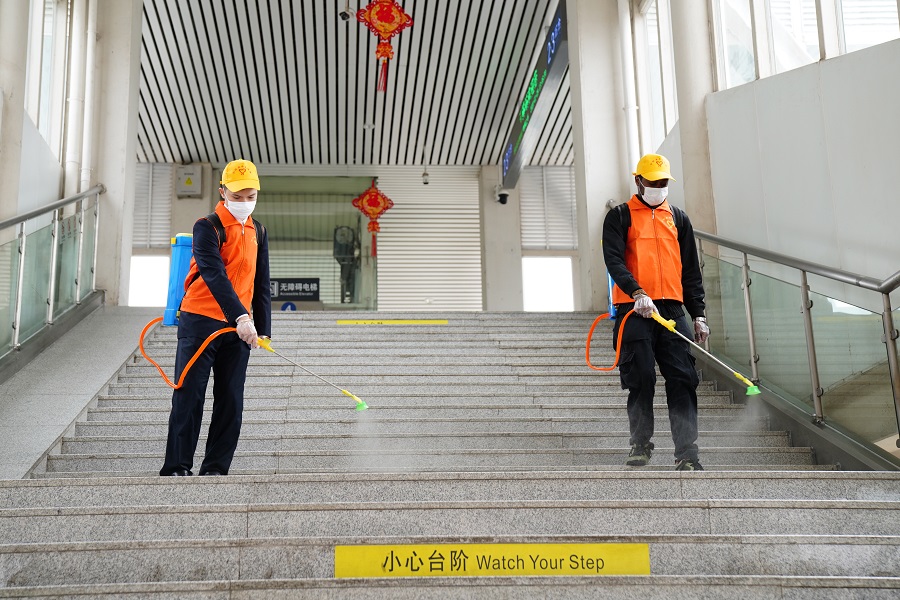
“A large number of medical workers have taken the initiative to join in treating patients, and many have donated material for epidemic prevention. I see strong national cohesion rather than fear from Chinese people in the fight against the novel coronavirus,” he said.
Gurure’s stayed in China for last year’s Spring Festival; he went to a concert and watched fireworks with his friend. But in light of the coronavirus, cities around the country canceled their holiday events this year.
“When the epidemic is over, I just want to go outside and breathe fresh air without wearing a mask,” he said. “And maybe go to another concert.”
